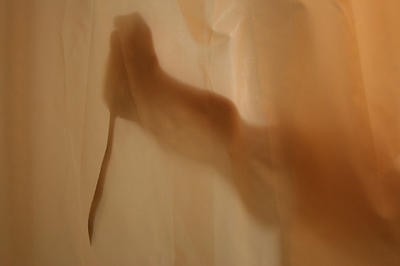
The Scores That Haunt You

With another Halloween approaching, horror, thriller, and supernatural films
come to the fore. Many of these pictures feature original music by composers
who have the gift for pushing our buttons and sending our pulses racing.
Bernard Herrmann, a frequent collaborator with director Alfred Hitchcock,
helped make history with his searing, astringent score for Psycho (1960).
Violins have never quite seemed the same. Nor has taking a shower.
John Williams won an Academy Award, while transforming the simple pleasure
of going to the beach, for his immediately recognizable score to Jaws (1975).
Just a year later, the Oscar went to composer Jerry Goldsmith for his quasi-
liturgical, strong-on-the-chorus, seriously ominous music for The Omen (1976).
The prolific Japanese composer Kôji Endô scored a remarkably effective and
truly frightening horror-satire, Audition (1999), a fine example of musical
understatement in this genre.
The Spanish director Alejandro Amenábar gets the additional credit for the
music to an excellent, atmospheric, haunted house thriller, The Others (2001).
On a gentler–but no less accomplished–note, Georges Auric wrote the
original score for Jean Cocteau’s visually and psychologically rich
fantasy, The Beauty and the Beast (1946).
Finally, writer-director John Carpenter’s horror classic, Halloween (1978),
profits from his own terse, impulsive score.
If you’re ever inclined to doubt the value of a composer’s contribution to
a movie, especially one of this kind, just imagine how much of your sense
of anticipation and tension comes from hearing the score itself.















